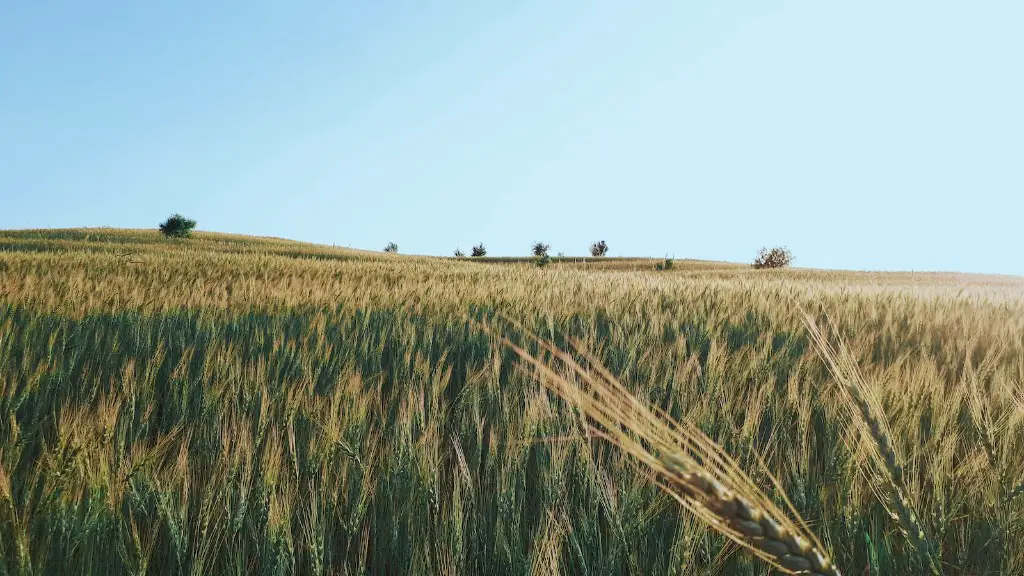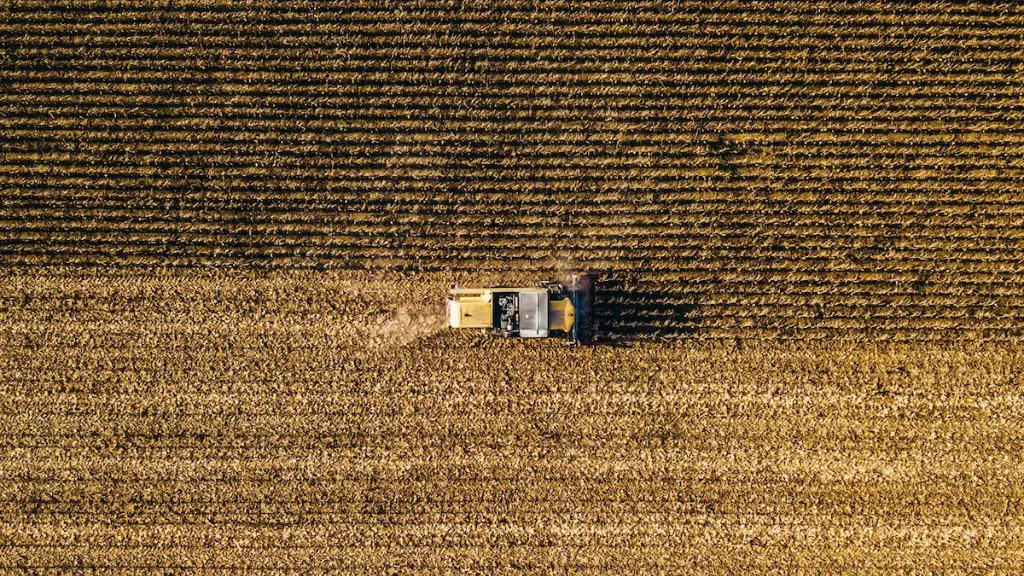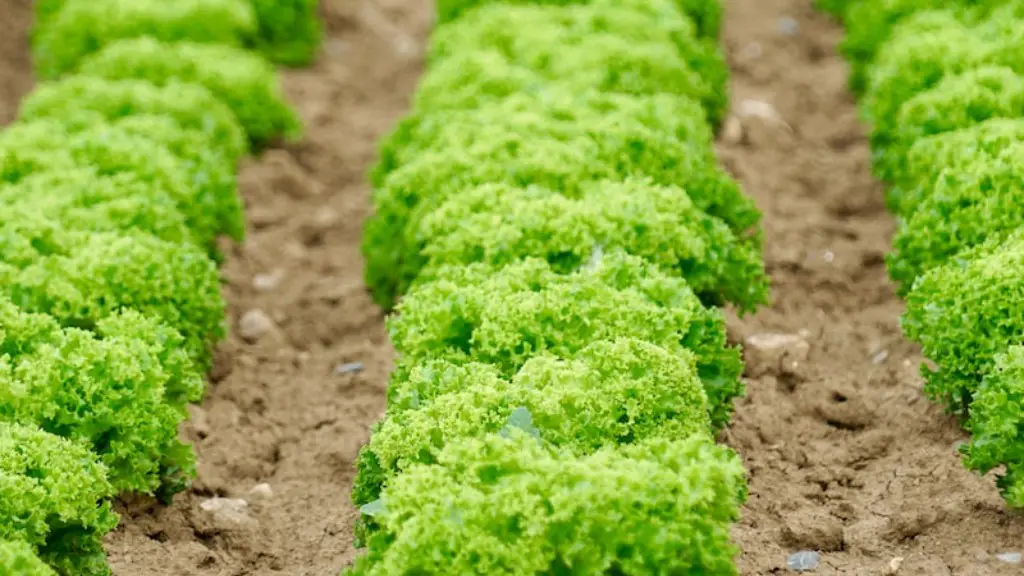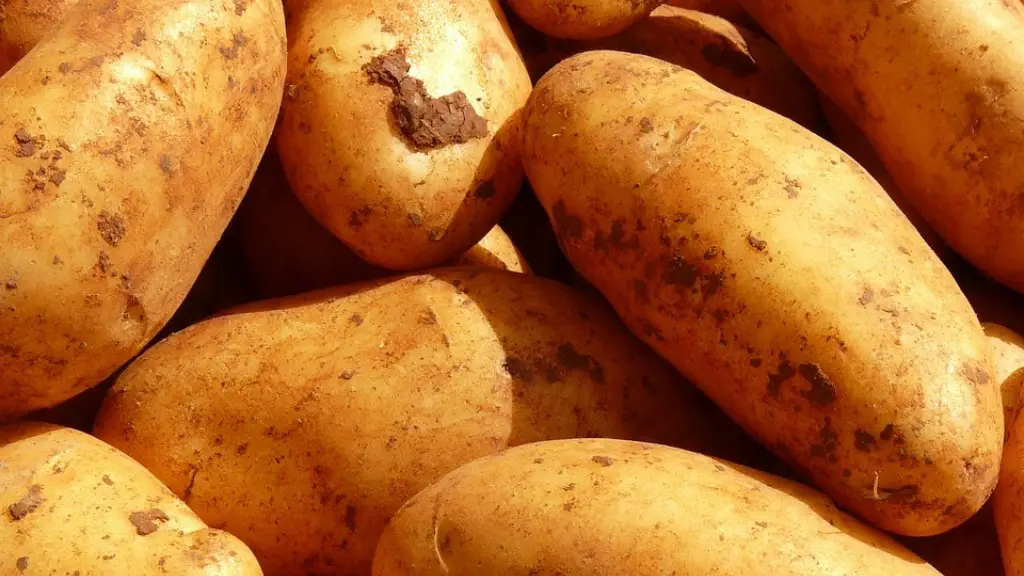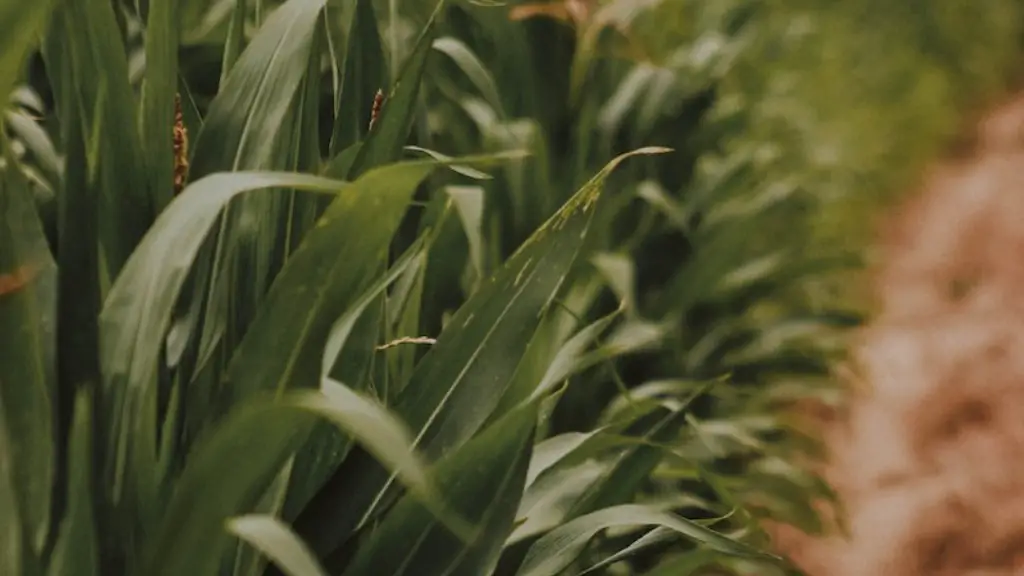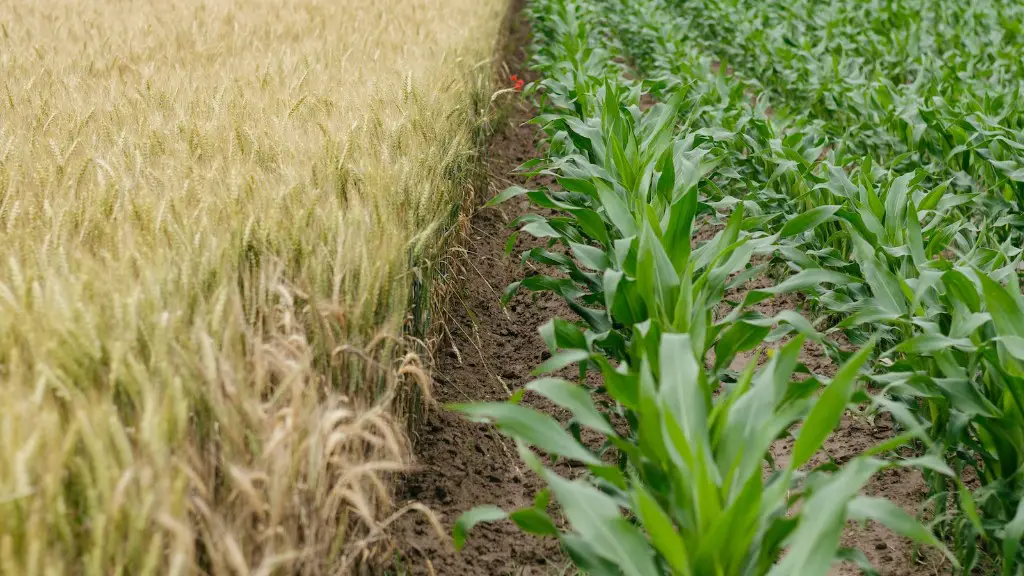The world’s population is ever-growing and projected to reach 9.7 billion by 2050. This increase in population will put a significant strain on the world’s resources, including food. Agriculture is currently responsible for 80% of deforestation, 70% of fresh water consumption, and 30% of greenhouse gas emissions. If we want to maintain a livable planet for future generations, we need to make agriculture more sustainable.
There are many ways to make agriculture more sustainable, such as reducing food waste, adopting organic farming practices, and using more efficient irrigation methods. Reducing food waste is crucial, as it is estimated that one-third of the food produced in the world is wasted. This is food that could be feeding people who are hungry. Adopting organic farming practices is another way to make agriculture more sustainable. Organic farming uses fewer chemicals and leads to healthier soil. This, in turn, leads to healthier plants and animals. Finally, using more efficient irrigation methods can help reduce the amount of water used in agriculture.
Making agriculture more sustainable is essential to preserving our planet for future generations. We must work to reduce food waste, adopt organic farming practices, and use more efficient irrigation methods.
There are a number of ways to make agriculture more sustainable. One way is to use more sustainable methods of farming, such as organic farming or regenerative agriculture. These methods are more environmentally friendly and can help to improve the quality of the soil and water. Another way to make agriculture more sustainable is to use more efficient methods of irrigation, such as drip irrigation. This can help to reduce the amount of water that is used in farming, which can save resources and help to reduce the impact of agriculture on the environment.
What are the three methods of sustainable agriculture?
There are three main types of sustainable agriculture: ecological, economic, and human health.
Ecological sustainable agriculture aims to protect and restore the natural environment, including the soil, water, and forests. It also seeks to minimize the use of pesticides and other harmful chemicals.
Economic sustainable agriculture strives to create a more equitable and just food system, where farmers and food workers are paid fairly and have access to land, water, and other resources. It also seeks to promote local and regional food economies.
Human health sustainable agriculture focuses on producing safe and nutritious food, while also protecting the health of farmers and consumers. It seeks to reduce the use of harmful pesticides and chemicals, and to increase food security.
1. Start your own garden: Growing your own food is a great way to reduce your carbon footprint and support sustainable food production.
2. Make your own organic soil: By making your own organic soil, you can ensure that your food is grown in healthy, sustainable conditions.
3. Eat local and organic: Buying local and organic food supports sustainable farmers and helps to reduce the environmental impact of transportation.
4. Close the loop: Supporting sustainable food production helps to close the loop of food production, ensuring that food waste is minimized and that nutrients are returned to the soil.
5. Join a local food club: Joining a local food club is a great way to meet other like-minded people and learn more about sustainable food production.
6. Eat less meat, more veggies: Reducing your meat consumption is one of the best things you can do for the environment. Eating more vegetables is a great way to do this.
7. Involve children: Children are the future and involving them in sustainable food production is a great way to ensure that the next generation is aware of and supports sustainable food practices.
8. Volunteer with a sustainable farm or food justice organization: Volunteering with a sustainable farm
What are the four ideas of sustainable agriculture
Sustainable agriculture is a type of agriculture that focuses on producing food in a way that is environmentally friendly and doesn’t damage the land. It involves using methods that are natural and don’t rely on harmful chemicals or pesticides. Sustainable agriculture is also focused on producing food in a way that is humane and doesn’t Exploit animals.
There are a number of ways to make your agricultural operation more sustainable. Crop rotation and crop diversity can help to improve soil health and reduce the need for synthetic inputs. Cover crops and reduced tillage or no-till farming can also help to improve soil health and reduce erosion. Beneficial insects and animals can help to control pests and improve soil health. Managed grazing can help to improve pasture health and reduce the need for supplemental feed. Selling directly to the local community can help to reduce transportation costs and increase farm profitability.
What 5 things can we do to improve agriculture?
There is no one silver bullet for increasing agricultural productivity. Various measures need to be adopted in order to make a significant impact. Some of these measures include:
1. Developing high-yield crops: This can be achieved through better breeding and seed production practices.
2. Boosting irrigation: Improved irrigation infrastructure and water management can help increase crop yields.
3. Increasing the use of fertilizers: Proper fertilizer application can help improve yields.
4. Improving market access, regulations, and governance: Creating an enabling environment for agriculture can help increase productivity.
5. Making better use of information technology: Technology can help improve agricultural production in various ways, from better weather forecasting to better farm management practices.
6. Adopting genetically modified (GM) crops: GM crops can help increase yields by introducing new traits that are beneficial to agriculture.
7. Reform land ownership with productivity and inclusiveness in mind: Land reform measures that focus on increasing productivity and inclusion can help boost agricultural productivity.
In sustainable agriculture, farmers work to reduce their reliance on external sources of energy, substituting renewable sources whenever possible. This might include using solar and wind power, biofuels made from agricultural waste, or, where it makes economic sense, labor from animals or humans. The goal is to create a more sustainable system that is less dependent on fossil fuels and other non-renewable resources.
What is sustainable agriculture give examples?
Sustainable farming methods include crop rotation, solar irrigation, geothermal heating and drip irrigation. These methods are designed to be renewable and energy efficient, helping to preserve natural resources.
Sustainable agriculture is becoming increasingly important as the world’s population continues to grow. Sustainable agriculture is a type of agriculture that is able to meet the needs of the present generation without compromising the ability of future generations to meet their own needs. This type of agriculture takes into account the environmental, social, and economic impacts of agriculture. It is important to note that sustainable agriculture is not a single system or set of practices, but rather a philosophy that can be applied to many different types of agriculture.
There are many reasons why sustainable agriculture is important. One of the most important reasons is that it can help to ensure that there is enough food for everyone. The world’s population is projected to reach 9.8 billion by 2050, and sustainable agriculture will be necessary to produce enough food for all of these people. In addition to producing enough food, sustainable agriculture can also help to protect the environment. Agriculture is a major source of pollution, and sustainable agriculture can help to reduce the impact of agriculture on the environment. Finally, sustainable agriculture is important for the economic viability of agriculture. Farmers who adopt sustainable practices can often reduce their costs, while still producing high-quality products. This can help to make agriculture a more viable career option for young people, and it can also
What are 10 sustainable practices
There are many things we can do to live more sustainably, and often, they start right at home. Here are 12 sustainability practices you can do at home to help make a difference:
1. Avoid disposable items.
2. Reduce your food waste.
3. Make your own cleaning products.
4. Grow a sustainable garden.
5. Buy products with less packaging.
6. Recycle properly.
7. Take meat off the menu.
8. Buy less, buy better.
9. Use reusable bags and containers.
10. Compost.
11. Use green power.
12. Save water.
The main advantages of increased crop productivity are that it decreases the use of water, fertilizer, and pesticides, which in turn keeps food prices down. In addition, it reduces the impact on natural ecosystems and decreases the runoff of chemicals into rivers and groundwater.
What are 11 ways to improve agricultural productivity?
The best way to improve farming productivity is to implement land reforms. This will help to optimize land usage and improve crop yields. Other ways to improve productivity include interplanting, planting more densely, using raised beds, and smart water management. Heat tolerant varieties can also be used to improve productivity in hot climates. Finally, using nitrogen can also help to improve crop yields.
The Agricultural Revolution was a period of significant agricultural development that took place during the 18th and early 19th centuries. It saw a series of inventions and innovations that changed the way farmers produced food.
The most significant of these inventions was the reaper, which greatly increased the efficiency of grain harvesting. Other important inventions included the thresher, the steam engine, the combine, the automobile, and the tractor.
The introduction of hydraulics also had a major impact on agriculture, making it possible to develop more efficient irrigation systems.
How can we achieve a sustainable environment
It is important to avoid the use of plastic bags to keep the oceans clean. We can do this by recycling items such as paper, plastic, glass and aluminum. We can also help protect the environment by planting trees. Biking, walking or using public transport are also sustainable ways to get around our cities and communities.
Sustainable development is a huge topic and one that we all need to be aware of and contribute to if we want to leave a liveable world for future generations. There are many different ways we can contribute to sustainable development, but some of the most important ways are to ensure access to clean water and sanitation for all, to ensure access to affordable and clean energy, and to take action on climate change. We all need to do our part to make sure that the world we leave behind is a sustainable one.
What are the 17 sustainable development?
The SDGs are a comprehensive and ambitious set of goals that aim to transform our world for the better. They were adopted by all United Nations Member States in 2015 and are now being implemented around the world.
The 17 goals are:
GOAL 1: No Poverty
GOAL 2: Zero Hunger
GOAL 3: Good Health and Well-being
GOAL 4: Quality Education
GOAL 5: Gender Equality
GOAL 6: Clean Water and Sanitation
GOAL 7: Affordable and Clean Energy
GOAL 8: Decent Work and Economic Growth
GOAL 9: Industry, Innovation and Infrastructure
GOAL 10: Reduced Inequalities
GOAL 11: Sustainable Cities and Communities
GOAL 12: Responsible Consumption and Production
GOAL 13: Climate Action
GOAL 14: Life Below Water
GOAL 15: Life on Land
GOAL 16: Peace, Justice and Strong Institutions
GOAL 17: Partnerships for the Goals
Each goal has a number of targets associated with it that need to be met in order to achieve the goal. For example, under Goal 1 (No Poverty), one of the targets is to eradicate extreme poverty for all people everywhere, which includes ensuring that all
There is an urgent need to increase agricultural yield per unit of land in order to meet the demand for food and other crops. This can be achieved by diversifying to value added crops, reducing costs, wastages, and pilferage.
Final Words
There are a number of ways to make agriculture more sustainable:
• Use sustainable methods of production such as organic farming, permaculture, and agroforestry.
• Increase the efficiency of resource use through methods such as no-till farming and precision agriculture.
• Use renewable energy sources for agricultural production, such as solar, wind, and biomass.
• Improve water management through practices such as irrigation scheduling, rainwater harvesting, and using greywater for irrigation.
• Incorporate sustainable waste management practices such as composting, anaerobic digestion, and vermiculture.
• Implement policies and incentives that support sustainable agriculture, such as environmental regulations, subsidies for sustainable farmers, and eco-labeling schemes.
There are a number of ways to make agriculture more sustainable. One way is to use organic farming methods. Organic farming uses fewer chemicals and relies on more natural methods to grow crops. This helps to improve soil health and reduces pollution. Another way to make agriculture more sustainable is to use more efficient irrigation methods. This can help to reduce water usage and help farmers to use less water.
